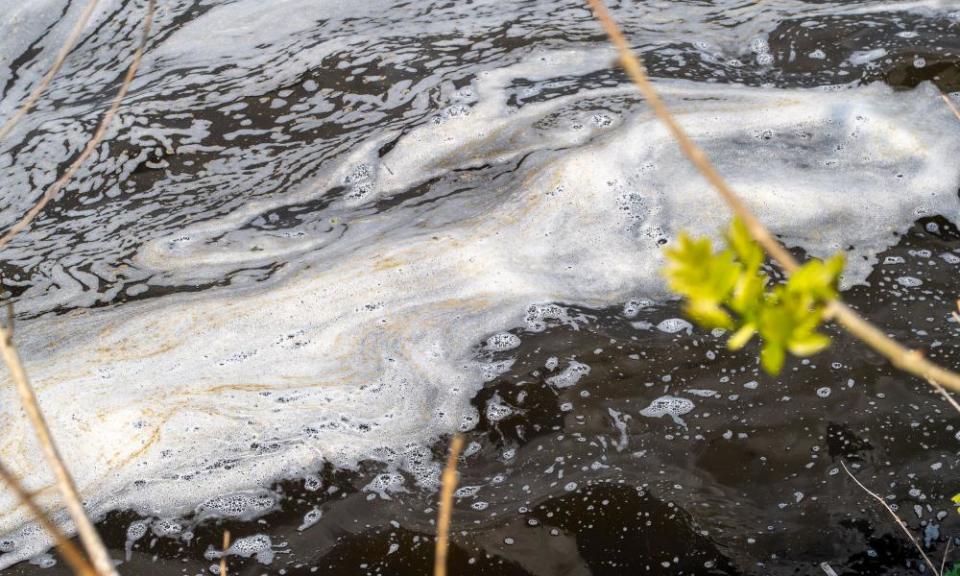Poor performance now ‘the norm’ for some water firms, warns Ofwat

Serious pollution by water companies has increased in the past year, the regulator has said in a damning report on the performance of the sector in England and Wales.
Ofwat said poor performance by some firms was embedded, and named Northumbrian Water, Southern Water, South West Water, Thames Water, Welsh Water and Yorkshire Water as lagging in the way they served customers and ran the system.
The regulator also analysed the financial resilience of the water firms, after a year in which three companies have been forced to inject capital to bolster their financial strength. Ofwat is taking a tough stance with water companies after criticism that for years the firms have not been properly regulated.
The body said most companies had failed to clearly explain the link between the dividends paid to shareholders and performance for customers. They said there had been improvements on leakage by water companies but more needed to be done to reduce leaks by 50% by 2050 from 2017-8 levels.
Related: Raw deal: discontent is rising as water companies pump sewage into UK waters
The Guardian revealed last week that the nine main water and sewerage companies had paid out £65.9bn in dividends in the last three decades. They have also taken on debts of £54bn.
Ofwat said Northumbrian Water and Portsmouth Water had paid dividends which were significantly higher than the regulator’s expectations and the companies’ financial resilience. Northumbrian dividends in the past year were £181.5m and Portsmouth Water paid £5.1m to shareholders.
David Black, the chief executive of Ofwat, said: “In too many areas, water and wastewater companies are falling short when it comes to looking after customers, the environment and their own financial resilience. We are clear; these companies need to address this unacceptable performance as a matter of urgency.
“For some companies poor performance has become the norm. This cannot go on. We are requiring the worst performers, including Thames Water and Southern Water, to return around £120m to customers.”
The performance report on 17 water companies said serious pollution had increased. “In 2021-22 the number of serious pollution incidents increased and there was a deterioration in the compliance of treatment works. Only four companies met the performance level to reduce sewage flooding in customers homes … Companies urgently need to improve their performance on this measure. There are cases of sustained poor performance over a number of years, such as South West Water.”
The report said, despite the poor performance, companies were not investing enough into treatment plants to reduce sewage discharges and to improve drought resilience.
Sewer flooding incidents in people’s homes were also highlighted as an area of concern. Southern Water and Thames Water have been told to cut sewer flooding by 56% and 61%, respectively, to meet the target of limiting incidents to 1.34 per 10,000 properties by 2024-25.
Ofwat said: “Companies have a duty to provide and maintain a sewerage system and should plan and invest to ensure they can cope with future pressures such as population growth and climate change.
“Some companies consider that storms and prolonged rainfall throughout 2021-22 contributed to an increase in the number of incidents they experienced. It is likely that with the impacts of climate change, the UK will continue to experience extreme weather events.”
Water companies are all being investigated by Ofwat and the Environment Agency over potentially illegal sewage discharges from their treatment plants.
Christine McGourty, chief executive of the industry body Water UK, said: “This report clearly shows there’s more to do for water and wastewater companies to meet the stretching targets of the regulators, as well as the high expectations of the public. It’s good to see that nearly every company has met its target on leakage reduction with an ambitious industry-wide plan in place to cut leaks by 50% by 2050.
“Water companies will continue to work with government and the regulators to ensure we enable the levels of investment needed to improve our infrastructure and protect the environment while maintaining value for money for customers.”

 Yahoo Movies
Yahoo Movies 